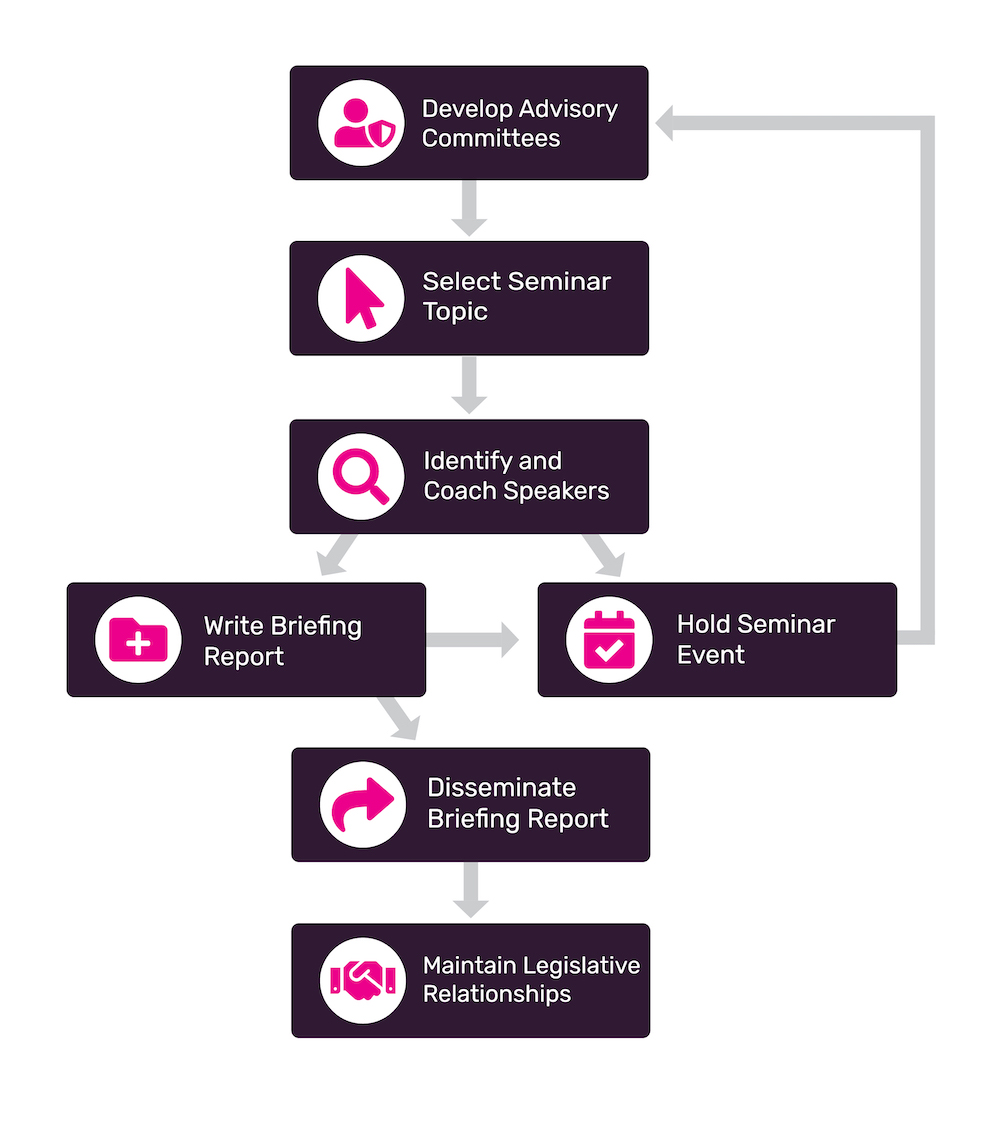
Evidence Of Impact
The FIS model has an extensive track record of successful implementation from the past 3 decades across over 30 states and territories. Findings from qualitative interviews highlight their impact on policymakers’ attitudes about the practical value of research and the approachability of researchers. State legislators commend the model for fostering relationships with their colleagues across the aisle. Legislators express the value of learning from “trusted partners” and rate the relevance and usefulness of seminars very highly. In one study, 79% of the participating legislators reported using research from seminars in their speeches. These seminars have also been linked to proposed legislation.
Model
In an era of polarized politics, the Family Impact Seminars provide a neutral, off-the-record setting for policymakers to discuss issues with their colleagues across the aisle to foster bipartisan relationships and the finding of common ground. This model builds a university-based, team-based infrastructure of researchers and policymakers that allow for sustainable, ongoing policy influence with modest resource expenditures. Faculty serve in the role as Seminar Directors and operate in a hub-and-spoke fashion by coordinating the activities of researchers in response to state legislators’ current interests.

Develop Advisory Committees
To ensure bipartisanship, faculty serving as Seminar Directors develop a Legislative and Gubernatorial Advisory Committee (equal parts Democrats and Republicans). Directors are also advised by governmental stakeholders who have expertise on the state context of the seminar topic.
Select Seminar Topic
The Bipartisan Legislative Advisory Committee recommends a relevant and specific seminar topic that connects legislative priorities and relevant research.
Identify and Coach Speakers
Researchers whose work is relevant to the seminar topic are invited to speak at the event. Speakers are trained on a nonpartisan, honest brokerage delivery of evidence.
Write Briefing Report
A referenceable, tangible deliverable is created for seminar attendees that includes summaries of speakers’ research, analyses of select laws, and the impact of policies and programs on families.
Hold Seminar Event
Seminar Directors facilitate a closed-door event involving state legislators, agency officials, and legislative service agency analysts. This event involves research presentations and off-the-record discussions across the political aisle.
Disseminate Briefing Report
To broaden the reach of Seminar activities, Briefing Reports are sent to additional legislators involved in relevant committees.
Maintain Legislative Relationships
Seminar Directors foster deep and long lasting connections that contribute to further use of research in policy-making. The Seminar events inform ways to improve upon their service to legislators including future topic selection.